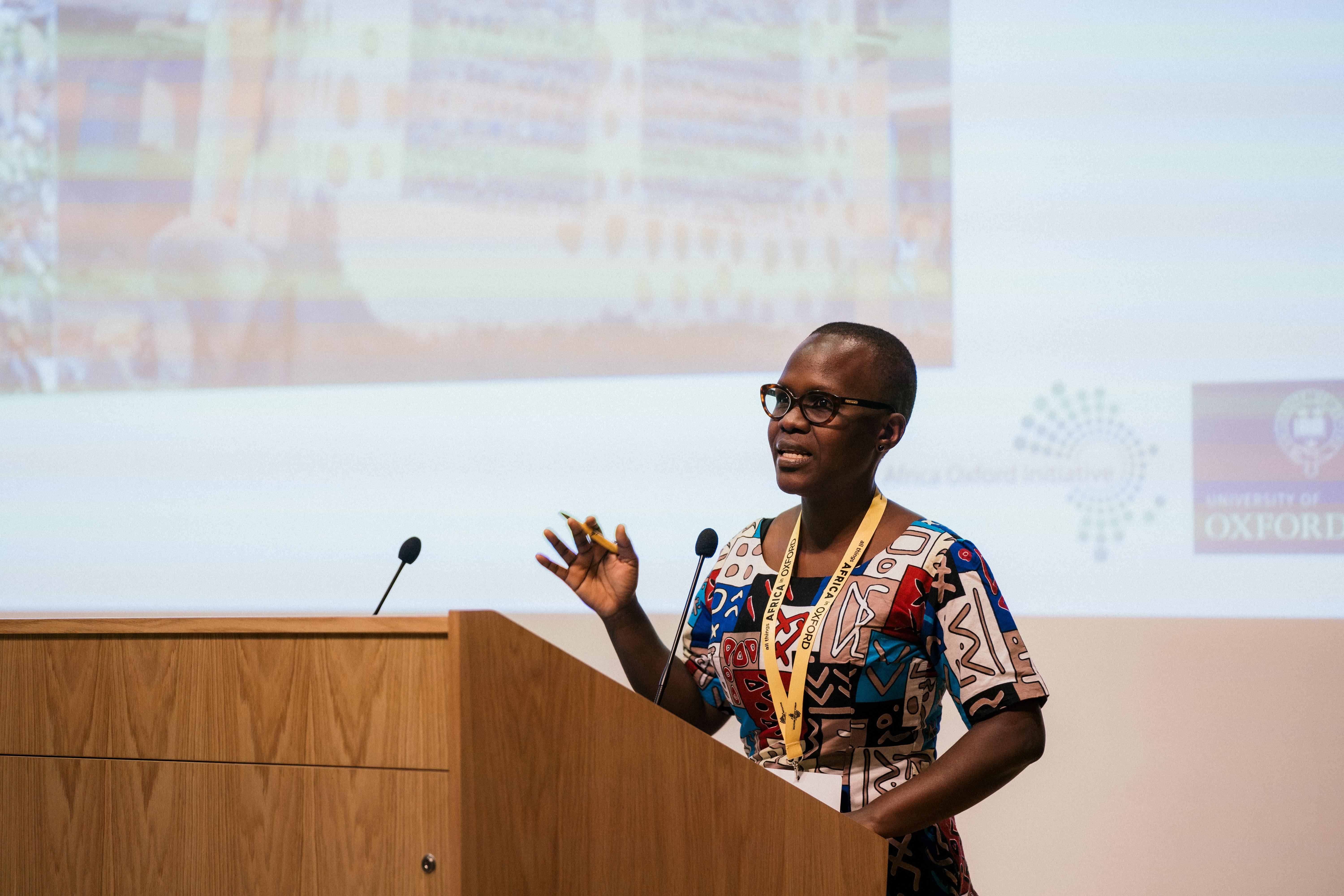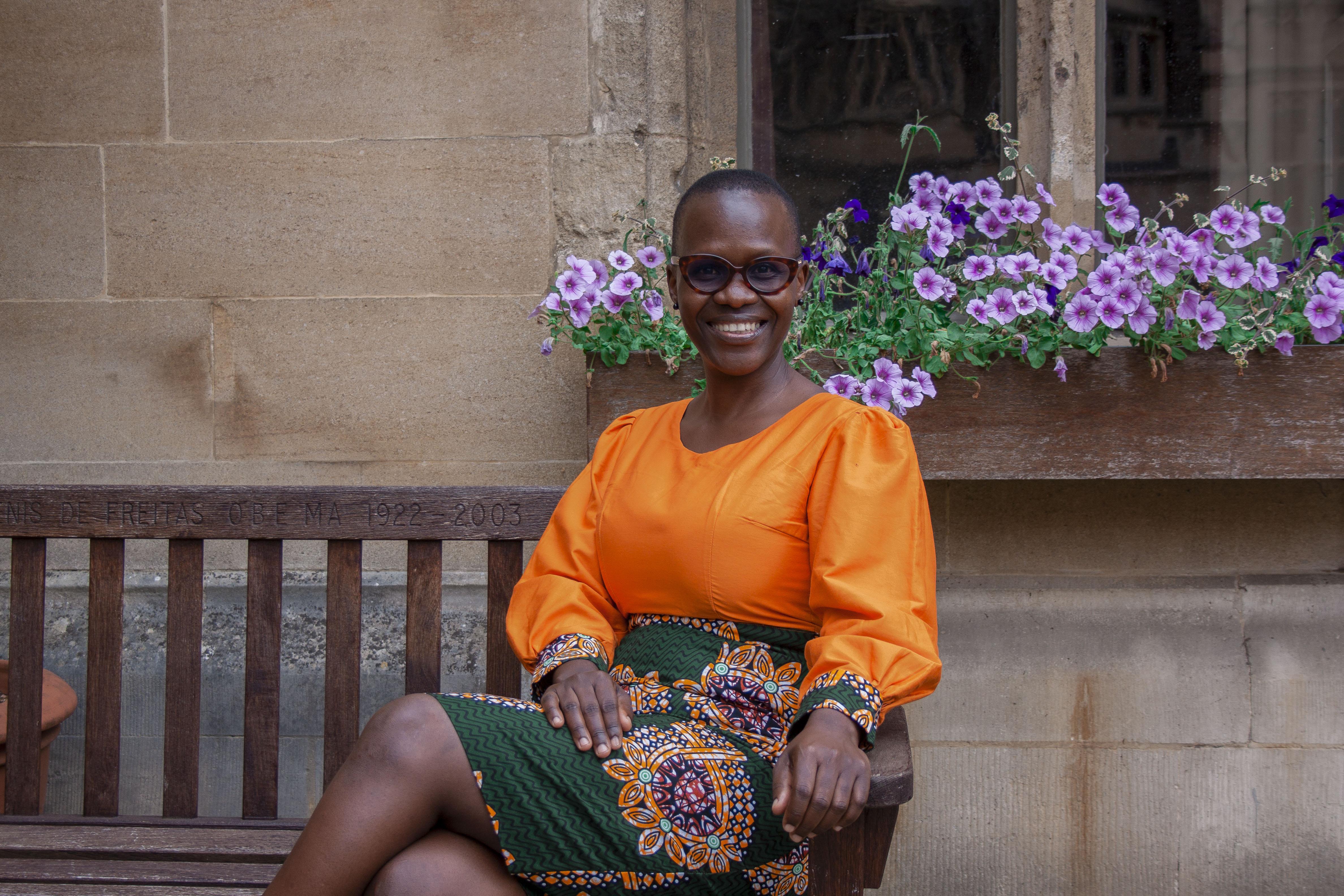Championing linking Entrepreneurship with Education in Uganda
Dr. Sarah Nabachwa is a lecturer in Entrepreneurship and Marketing at Mbarara University of Science and Technology in Uganda and was an Africa Oxford Initiative (AfOx) Visiting Fellow 2023-24, at the Said Business School, University of Oxford and Brasenose College. In her research, she is committed to exploring the role of street-smart entrepreneurs in fostering employment and innovation in Uganda.
Dr. Nabachwa observed that the case studies used to teach Business Studies in Africa often drew on examples from Europe and the United States. There were few case studies rooted in the African context. To address this, she began developing case studies which explored the challenges and impact of Ugandan businesses. The relevance of these local case studies, Dr. Nabachwa hoped, would spark interest from her students and enrich class discussions.
“The market strategies of global giants like Gillette or Procter & Gamble can feel distant and overly theoretical for my students,” remarks Dr. Nabachwa.
While an Afox Visiting Fellow, Dr Nabachwa focused on what she calls "street-smart" businesses and collaborated with Dr Brophy and Professor Savaget at the Said Business School.

Street smart entrepreneurs often have no formal education and establish business ventures out of necessity. "These entrepreneurs have no safety net," Dr. Nabachwa explains. "Without degrees, they have an unwavering determination to succeed."
Formal employment remains a pressing issue in Uganda. In 2021, more than 9.3 million Ugandans were unemployed, according to the country’s Bureau of Statistics. Dr. Nabachwa attributes this to a misalignment between the skills taught in schools and the demands of the job market. The education system, she notes, is preparing students for professions that do not yet exist in the country.
The street entrepreneurs, on the other hand, are pragmatic and actively contribute to the local economy. Understanding how these street-smart businesses develop is essential to supporting entrepreneurship and innovation in Uganda. Dr. Nabachwa’s case subjects, though hailing from humble beginnings, have risen to become the most innovative businesses in Uganda. One study is about Quality Supermarket, which was established in 1980 and now operates across Kampala and has evolved into one of the country’s largest locally-owned enterprises. Another case is about how Ghetto Research Lab mobilises youth from the capital's slums to recycle plastic materials into useful building supplies.

When discussing the challenges she encountered in developing her cases, Dr Nabachwa highlights difficulties in data collection. Because local businesses seldom publish information online, she relied on interviews conducted before the fellowship commenced. Ugandan businesses are often wary of high taxes and hesitant to share all their operational details with a researcher for fear of drawing unwarranted attention from the government.
Nabachwa is interested in transforming not only the materials she uses in her classes but also in the way she teaches. During her fellowship, she observed stark differences in the teaching styles at the University of Oxford and Mbarara University of Science and Technology. “At my university, the professors are seen as the ultimate authority,” she observes. “In contrast, Oxford prioritizes student preparation and enriching class discussions.”
When Nabachwa tried implementing this model in her classes, she found the students were overwhelmed with work from their jobs and unable to complete the readings in time. In response, she divided the classes into reading sections followed by discussions, and this ensured she could draw inspiration from Oxford without necessarily replicating its model. “Our biggest challenge is avoiding replication,” Nabachwa reflects. “We must assimilate best practices and adopt them to our context.” Nabachwa hopes to do the same for the curriculum.
Dr. Nabachwa is currently running entrepreneurship bootcamps at her university and working on consultancy projects with UNESCO. “Now I get invited to everything. I serve as a reviewer, consultant, and speaker, which has distracted my attention from refining my business cases,” she explains. Once the flurry of activity subsides and she gets more time, Dr. Nabachwa hopes to revisit the cases she has drafted and publish them. This, she says, will be her contribution to transforming the reading materials in her classes.

The AfOx Visiting Fellowship Program supports leading African scholars and researchers working in any academic discipline to focus on a project they choose while in Oxford. All Fellows have an Oxford-based researcher as a collaborator and these relationships have often developed into long-term partnerships leading to to significant research outcomes, joint publications and substantial further funding.
